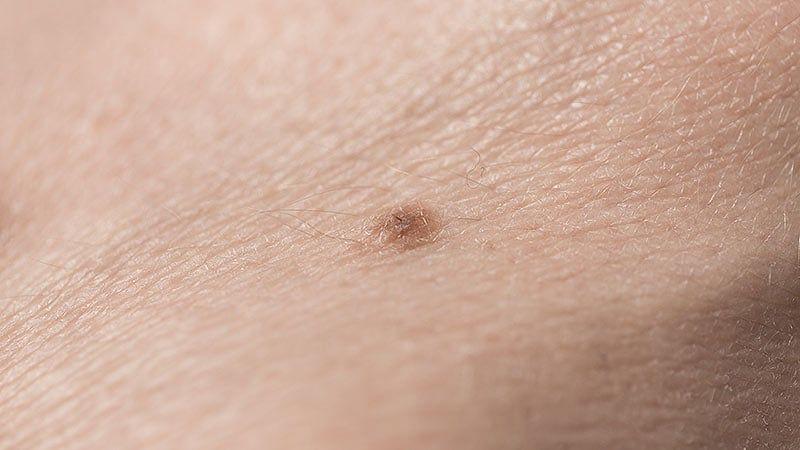AI-Powered Dermatology for Dark Skin Tones: New Database Aims to Bridge Healthcare Gap in Africa
2 Sources
2 Sources
[1]
AI-supported dermatology for darker skin tones, thanks to new data set
In many countries in Africa, up to nine out of ten children suffer from a skin problem, and there are far too few local dermatologists. Artificial intelligence could help with diagnosis, but needs to be trained with the relevant images, so researchers have created a new data set for dark skin tones. Demand is high, the lack of dermatologists acute: in many countries in Africa, there is less than one dermatology specialist per one million people -- compared to the World Health Organization (WHO) recommendation of one specialist per 50,000. This lack of specialists is noticeable in rural Africa in particular, with up to 87% of children suffering from untreated skin diseases. The PASSION project (abbreviation for Pediatric AI Skin Support In Outreach Nations) has been set up with the aim of remedying this problem: a team of researchers from the University of Basel, led by Professor Alexander Navarini, worked with colleagues from Madagascar, Malawi and Guinea to create a foundation for using artificial intelligence (AI) to support dermatological diagnostics in these regions. If AI is to detect eczema from a photo, for example, it first needs to learn what eczema looks like based on hundreds of photos. But the existing photos are primarily of skin problems in light skin types, which have been provided as documentation by clinics in Europe and the U.S. The medical shortage in a lot of countries in Africa also means that there is a lack of image material for skin problems in pigmented skin. If AI programs are only trained using photos of light skin, they may be much less effective at diagnosing changes on darker skin tones. The researchers have therefore created a database of images of very common skin diseases: eczema, fungal infections of the skin and nails, scabies and superficial skin infections with streptococci or staphylococci. This data set can be used to train new AI programs for dermatological diagnostics, but also to test existing AI models for accuracy. The images were taken, with the patients' consent, by local dermatologists in Madagascar, Malawi and Guinea from 2020 to 2023. The images were annotated to include the diagnosis and information on the age, gender and body part, and then entered into the anonymized database. The database now contains over 4,200 images of skin changes in around 1300 patients, two thirds of whom are under 18. Self-diagnosis using a smartphone "Our vision is that each patient will be able to take a photo of their skin problem themselves free of charge using a smartphone and then upload it. They will then receive a treatment recommendation from AI," says Navarini. If this method is as accurate as it is hoped, it will be possible to use it in triage and, where appropriate, for initial treatment. Human dermatologists would only be involved if the complaint persists. "We are currently testing the method step by step as part of a validation study in Madagascar. Once diagnostic accuracy exceeds 80%, we intend to offer the new diagnostic tool with scientific monitoring," explains Philippe Gottfrois, doctoral student in Navarini's research group and lead author of the study. In the next steps, the researchers aim to expand the database to include additional image material, primarily of neglected tropical skin diseases. They hope that AI will be able to narrow the large gap in dermatological care in these regions.
[2]
New image database aims to improve dermatological diagnostics in Africa
University of BaselOct 12 2024 In many countries in Africa, up to nine out of ten children suffer from a skin problem, and there are far too few local dermatologists. Artificial intelligence could help with diagnosis, but needs to be trained with the relevant images, so researchers have created a new data set for dark skin tones. Demand is high, the lack of dermatologists acute: in many countries in Africa, there is less than one dermatology specialist per one million people - compared to the World Health Organization (WHO) recommendation of one specialist per 50,000. This lack of specialists is noticeable in rural Africa in particular, with up to 87% of children suffering from untreated skin diseases. The PASSION project (abbreviation for Pediatric AI Skin Support In Outreach Nations) has been set up with the aim of remedying this problem: a team of researchers from the University of Basel, led by Professor Alexander Navarini, worked with colleagues from Madagascar, Malawi and Guinea to create a foundation for using artificial intelligence (AI) to support dermatological diagnostics in these regions. They are presenting the project at the MICCAI 2024 conference (International Conference on Medical Image Computing and Computer Assisted Intervention) in Marrakesh. Lack of images of dark skin tones If AI is to detect eczema from a photo, for example, it first needs to learn what eczema looks like based on hundreds of photos. But the existing photos are primarily of skin problems in light skin types, which have been provided as documentation by clinics in Europe and the USA. The medical shortage in a lot of countries in Africa also means that there is a lack of image material for skin problems in pigmented skin. If AI programs are only trained using photos of light skin, they may be much less effective at diagnosing changes on darker skin tones. The researchers have therefore created a database of images of very common skin diseases: eczema, fungal infections of the skin and nails, scabies and superficial skin infections with streptococci or staphylococci. This data set can be used to train new AI programs for dermatological diagnostics, but also to test existing AI models for accuracy. The images were taken, with the patients' consent, by local dermatologists in Madagascar, Malawi and Guinea from 2020 to 2023. The images were annotated to include the diagnosis and information on the age, gender and body part, and then entered into the anonymized database. The database now contains over 4,200 images of skin changes in around 1300 patients, two thirds of whom are under 18. Self-diagnosis using a smartphone Our vision is that each patient will be able to take a photo of their skin problem themselves free of charge using a smartphone and then upload it. They will then receive a treatment recommendation from AI." Alexander Navarini, Professor, University of Basel If this method is as accurate as it is hoped, it will be possible to use it in triage and, where appropriate, for initial treatment. Human dermatologists would only be involved if the complaint persists. "We are currently testing the method step by step as part of a validation study in Madagascar. Once diagnostic accuracy exceeds 80%, we intend to offer the new diagnostic tool with scientific monitoring," explains Philippe Gottfrois, doctoral student in Navarini's research group and lead author of the study. In the next steps, the researchers aim to expand the database to include additional image material, primarily of neglected tropical skin diseases. They hope that AI will be able to narrow the large gap in dermatological care in these regions. University of Basel Journal reference: Gottfrois, P., et al. (2024). PASSION for Dermatology: Bridging the Diversity Gap with Pigmented Skin Images from Sub-Saharan Africa. Lecture Notes in Computer Science. doi.org/10.1007/978-3-031-72384-1_66.
Share
Share
Copy Link
Researchers develop a new image database to train AI for diagnosing skin conditions in darker skin tones, addressing the severe shortage of dermatologists in Africa and potentially revolutionizing healthcare access in the region.

Addressing the Dermatological Crisis in Africa
In many African countries, a severe shortage of dermatologists has left millions, particularly children, suffering from untreated skin conditions. With less than one specialist per million people in some areas, compared to the World Health Organization's recommendation of one per 50,000, the need for innovative solutions is critical
1
2
.The PASSION Project: AI-Powered Dermatology
To address this healthcare gap, researchers from the University of Basel, led by Professor Alexander Navarini, have launched the PASSION project (Pediatric AI Skin Support In Outreach Nations). This initiative aims to leverage artificial intelligence (AI) to support dermatological diagnostics in regions with limited access to specialists
1
2
.Creating a Diverse Image Database
A key challenge in developing AI for dermatological diagnosis is the lack of diverse training data. Existing databases primarily contain images of light skin types from European and U.S. clinics. To overcome this, the PASSION team has created a new database focusing on common skin diseases in darker skin tones
1
2
.The database includes:
- Over 4,200 images from around 1,300 patients
- Two-thirds of patients under 18 years old
- Images of eczema, fungal infections, scabies, and bacterial skin infections
- Data collected from Madagascar, Malawi, and Guinea between 2020 and 2023
AI-Powered Self-Diagnosis Vision
The researchers envision a future where patients can use smartphones to photograph their skin conditions and receive AI-generated treatment recommendations. This approach could revolutionize triage and initial treatment in underserved areas
1
2
.Philippe Gottfrois, lead author of the study, states, "We are currently testing the method step by step as part of a validation study in Madagascar. Once diagnostic accuracy exceeds 80%, we intend to offer the new diagnostic tool with scientific monitoring"
1
2
.Related Stories
Expanding the Database and Future Prospects
The team plans to expand the database to include neglected tropical skin diseases, further improving the AI's diagnostic capabilities. This initiative has the potential to significantly narrow the gap in dermatological care across Africa
1
2
.Implications for Global Health Equity
The PASSION project highlights the importance of diverse data in developing AI for healthcare applications. By addressing the specific needs of underserved populations, this research could set a precedent for more inclusive medical AI development worldwide
1
2
.As the project progresses, it may offer valuable insights into the challenges and opportunities of implementing AI-driven healthcare solutions in resource-limited settings, potentially paving the way for similar initiatives in other medical fields.
References
Summarized by
Navi
[1]
Related Stories
Recent Highlights
1
Pentagon threatens Anthropic with Defense Production Act over AI military use restrictions
Policy and Regulation

2
Google Gemini 3.1 Pro doubles reasoning score, beats rivals in key AI benchmarks
Technology

3
Anthropic accuses Chinese AI labs of stealing Claude through 24,000 fake accounts
Policy and Regulation








